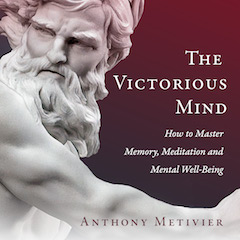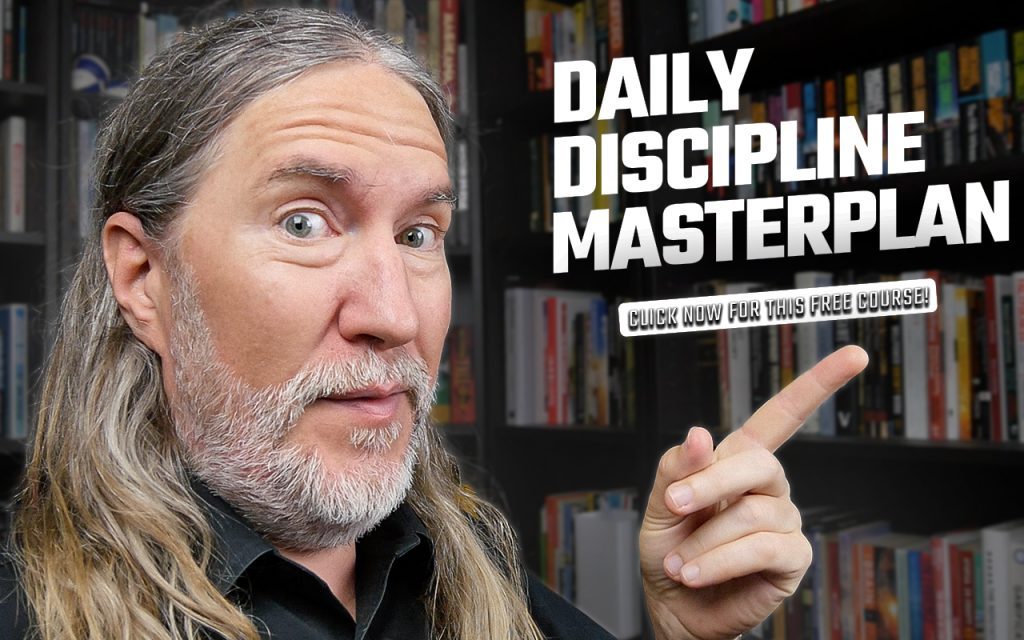Some people say that awareness and consciousness are not the same thing.
Others would disagree.
What’s at stake in the debate?
And do you get a prize if you solve the puzzle?
Spoiler alert:
If you find intellectual noodling useful or pleasurable, that’s one of the prizes.
And it’s a gift that keep on giving.
But some of us just want to experience self-awareness at a higher level without all the linguistic jujitsu.
Either way, we’re about to explore how these two concepts intertwine, and figure out if they’re distinct.
And if they are, what practical value can we make out of the distinction?
Ready?
Let’s dive in!
What Is Awareness?
What if I told you that people used to use the word awaredom?
Apparently, that was the vogue term circa 1752.
The “dom” suffix may have been dropped for interesting historical reasons, but I think it’s important that we dig up this earlier term.
“Dom” is added to words to indicate a domain (kingdom) or a state of condition (freedom).
And typically, we use the word awareness to refer to our awareness of ourselves or other objects and entities in the world.
But are we really aware of the outer universe? And is it aware of us?
Not if awareness is a state. It’s probably more correct to say that we’re conscious of the outer limits of reality, infinity and the like.
But we can’t really be aware of them in the strict sense of establishing a domain over them, precisely because such things are probably in a state of becoming.
For the purposes of becoming the best version of yourself, it’s often best to keep focused specifically on your self-awareness. Focusing on positive meditations and other personal development activities is key.
What Is Consciousness?
Consciousness can be a stand-in for awareness. The philosopher John Locke was using the term in this way circa 1690.
In spiritual circles, consciousness is often used to describe a divine mind, a sense of the species as a whole, if not a connection with the entire world.
Schools of spiritual philosophy like Advaita Vedanta differentiate between the individual jiva (the self that you experience in your awareness) and Brahman.
Basically, the idea is that although you experience yourself as an individual “unit” as Fred Davis puts it, that’s an illusion. When seeking peace, the fastest path is often said to involve erasing the distinction you think you feel between your self-awareness and a larger definition of consciousness.
For example, the Bhagavad Gita describes the goal of realizing that all of reality is a field. You are the witness of the field, but also the field itself. You aren’t separate.
Although the promise of this kind of nondual awareness sounds crazy, there are scientific reasons why people legitimately experience it. In fact, I’ve personally found it to be one of the most important goals I’ve pursued.
Awareness Vs Consciousness: The Stakes For Your Personal Development
At one level, the difference between these two terms boils down to semantics.
However, when we think about some of the great spiritual traditions, meditating on the technical problem of separation from the whole, the rewards become clear.
For years, I searched for a way to just be.
It was only when I realized that thinking I was different from others needed to stop that some relief started to arise.
That and I started memorizing Sanskrit verses that helped me remember key points of the technical philosophy Advaita presents. I share some of the key findings and practices I discovered in a book called The Victorious Mind.
A lot of boils down to developing knowledge of self at both levels: the individual self and the notion of a consciousness that binds us all.
The cool thing about this idea is that you don’t have to go off into woo-woo land to benefit from this idea.
The fact that you’re reading and understanding these words now shows that we share a consciousness that is larger than either of us.
People who don’t currently know English can either learn the language we’re sharing. Or they can use a tool to translate the meaning into their mother tongue.
That’s a powerful example of conscious awareness. The Internet is another one, perhaps the most ambitious project that demonstrates our species-wide connection in the best possible way.
Are There Levels Of Consciousness & Awareness?
Possibly.
But I tend to think of such things as “pseudo questions.”
This is a term used to describe questions for which there is no answer. Sure, they’re fun to noodle around with, but what changes if you land upon an answer?
Probably nothing.
And there will be all kinds of people happy to disagree with you no matter what you come up with as a result of turning the idea around in your mind.
The fact that we’re puzzled by how others can’t agree with some of our findings and positions shows that we really do have limited awareness at the same time we have a larger consciousness that lets us share a language.
But the fact that some people are willing to claim they have special knowledge of “quantum consciousness” and whatnot falls flat with a person like me.
What can I do with such an idea?
Nothing compared to using some simple self care meditations and other ideas proven to take me beyond thought.
Plus, there are the benefits of reading some of the science of consciousness, which increasingly reveal life as a kind of chemistry and the brain a kind of “natural computer.” It is especially good at helping us share our thoughts with each other, including our perceptions around awareness.
Is Awareness The Ultimate Consciousness? Or Vice Versa?
If I were to allow myself to play a game of semantics, I would suggest this:
If you can learn to turn down your thoughts and enjoy the company of your own existence, the words we use for things won’t matter.
They’ll start to seem like tools in a toolbox.
You can put them away when you don’t need them and maintain your “awareness” of them without needing to be “conscious” that they’re there.
That’s a function of memory and a beautiful one at that.
If you found this approach to the question of awareness and consciousness useful and would like more ideas on how to grow as a person, grab this free course:
It will help you take some simple steps that have helped me so much.
Especially as a former hot head who used to get all riled up over the difference between words.
I couldn’t see them as tools and I certainly wasn’t “aware” of how lacking in “consciousness” about their function in the larger game of life.
So what do you say?
Has this post given you some food for thought on the consciousness vs awareness issue?
Thinking it through while working to resolve the noise that so much thinking creates has been a game changer for me.
Language, paradoxically, is the tool that undoes language and can potentially lead to so much peace, if not enlightenment itself.




You said, “The fact that you’re reading and understanding these words now shows that we share a consciousness that is larger than either of us,” but that sounds like a nonsequitur to me. I don’t see how learned conventions imply a consciousness apart from the individual.
Thanks for your post.
I’ll review for clarity as I precisely mean the opposite of what you’ve interpreted.
The point I am trying to make is that our communication now is evidence that consciousness is not apart from either of us individuals. A further point is that individuality is an illusion.
With respect to nonsequiturs, this blog uses non-classical logics that reveal paraconsistencies. One can be aware of issues raised in classical logic, but we can consciously contextualize them in a much larger frame.
Again, thank you for your post.